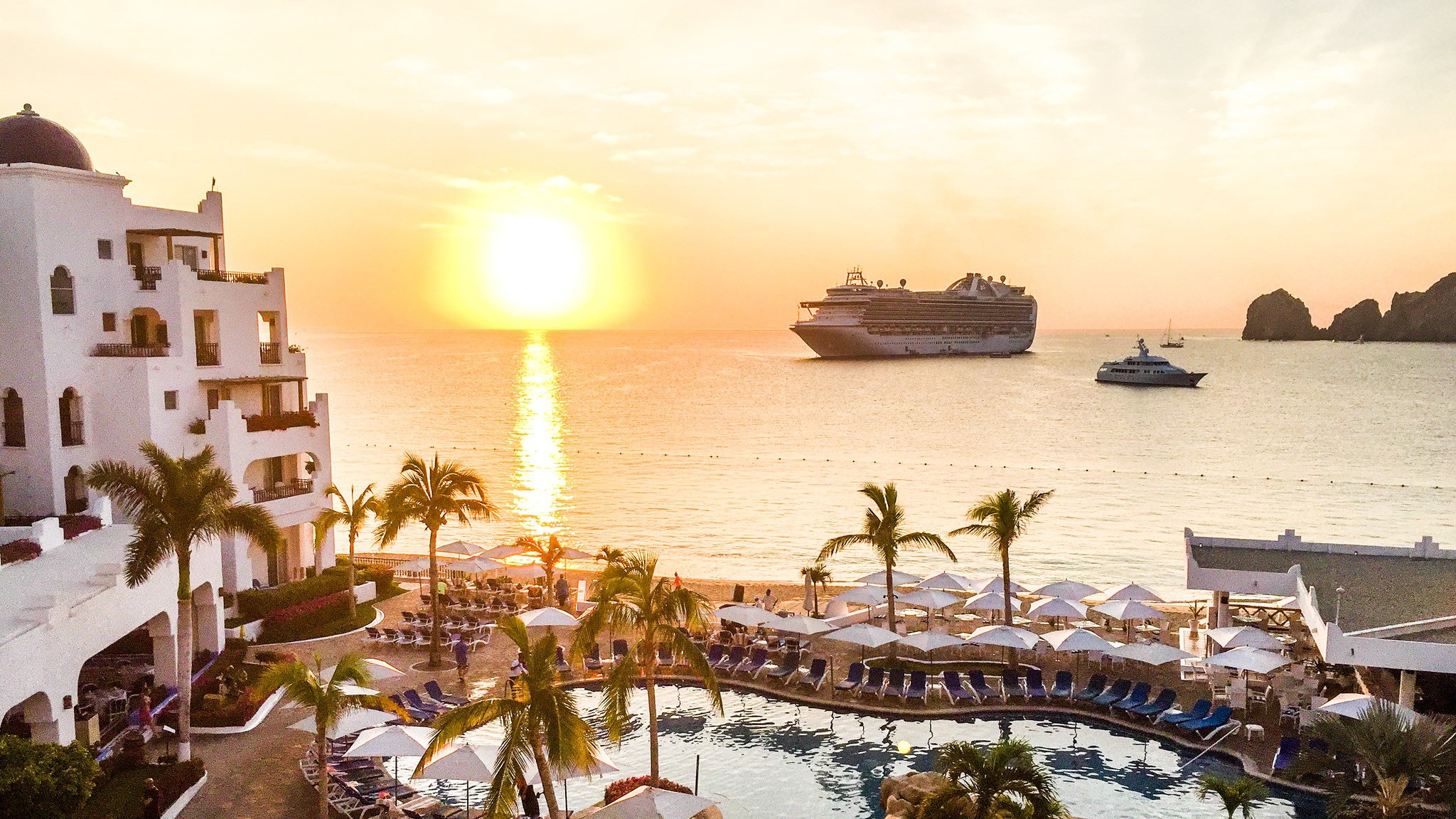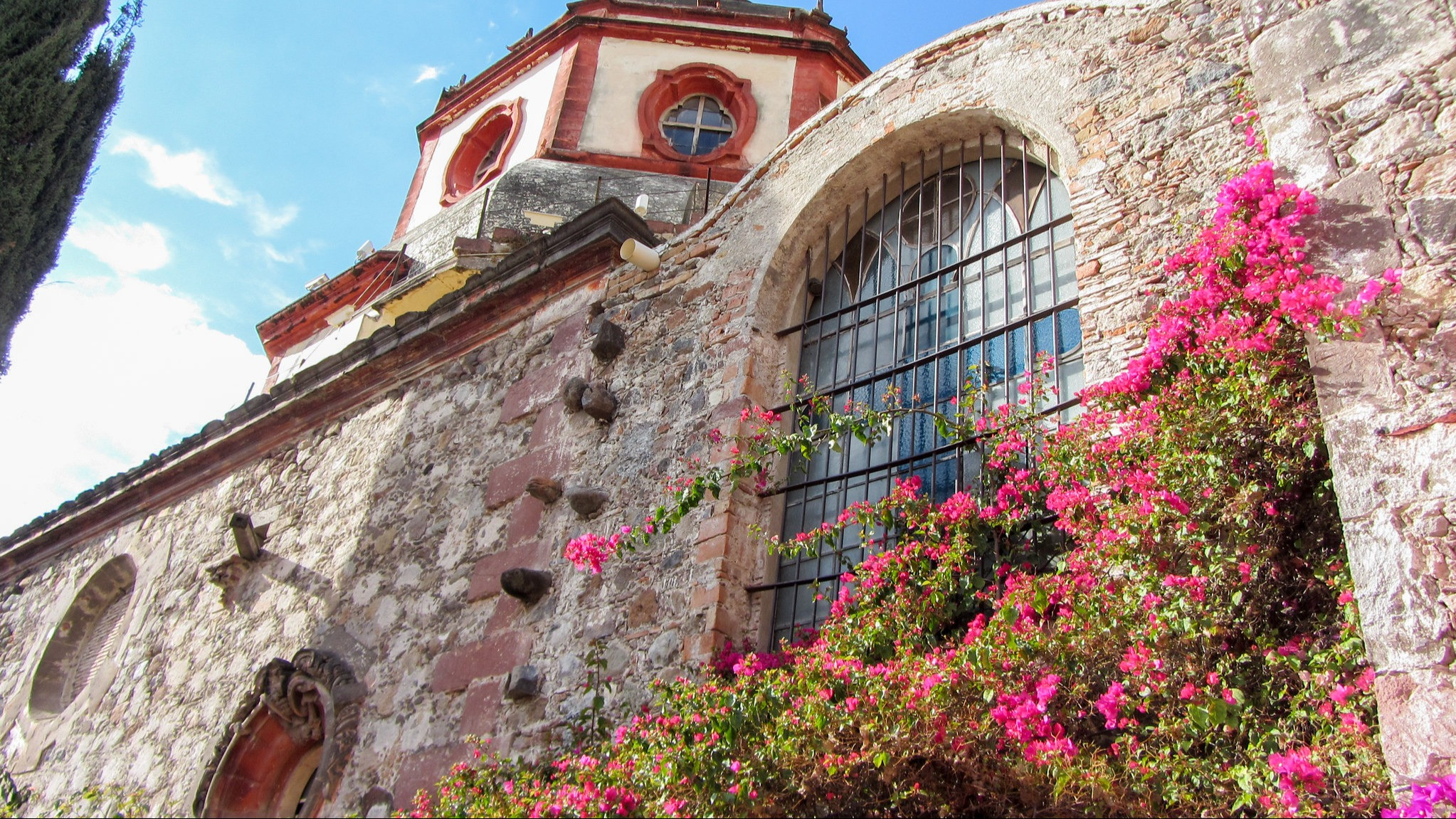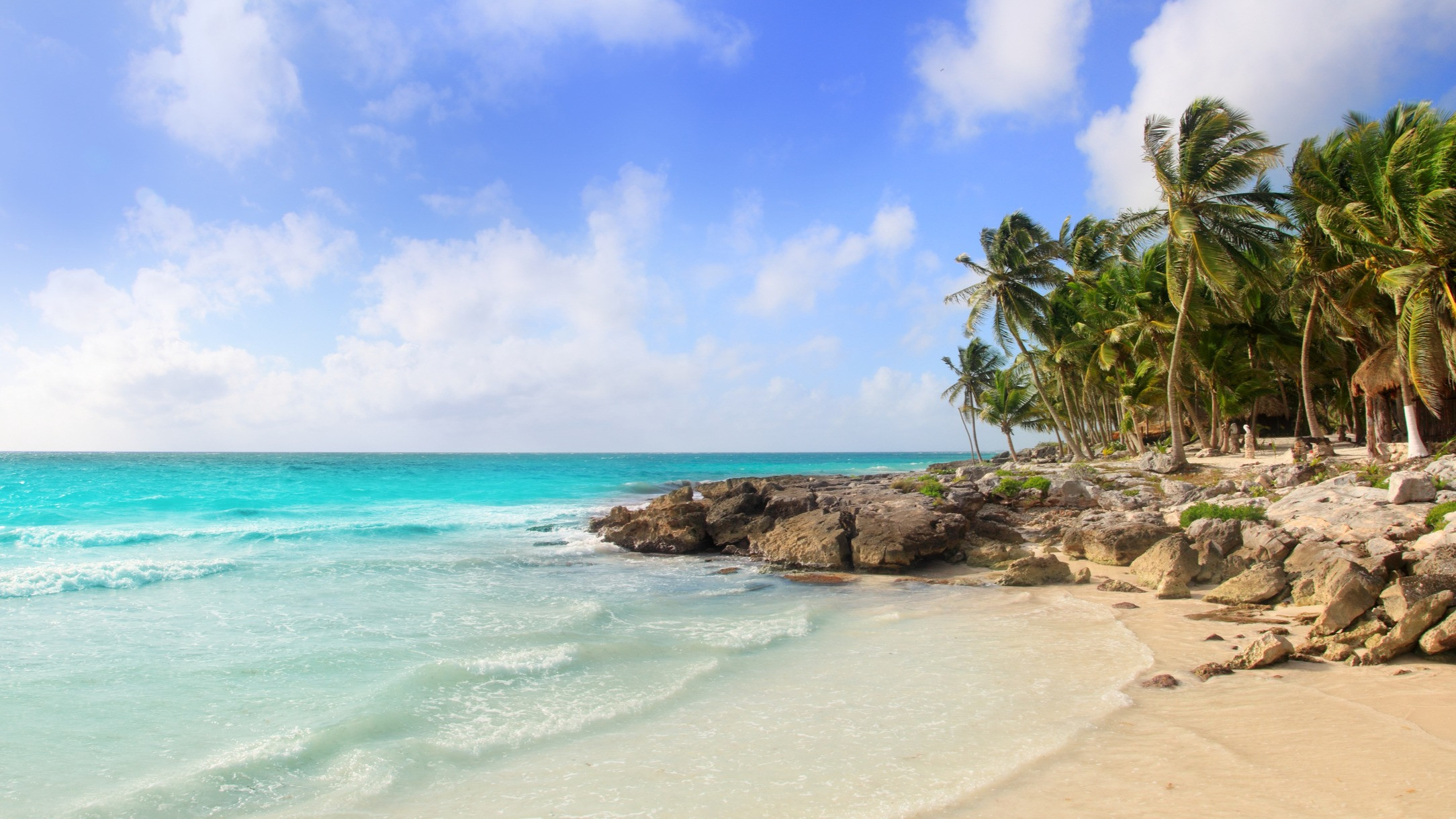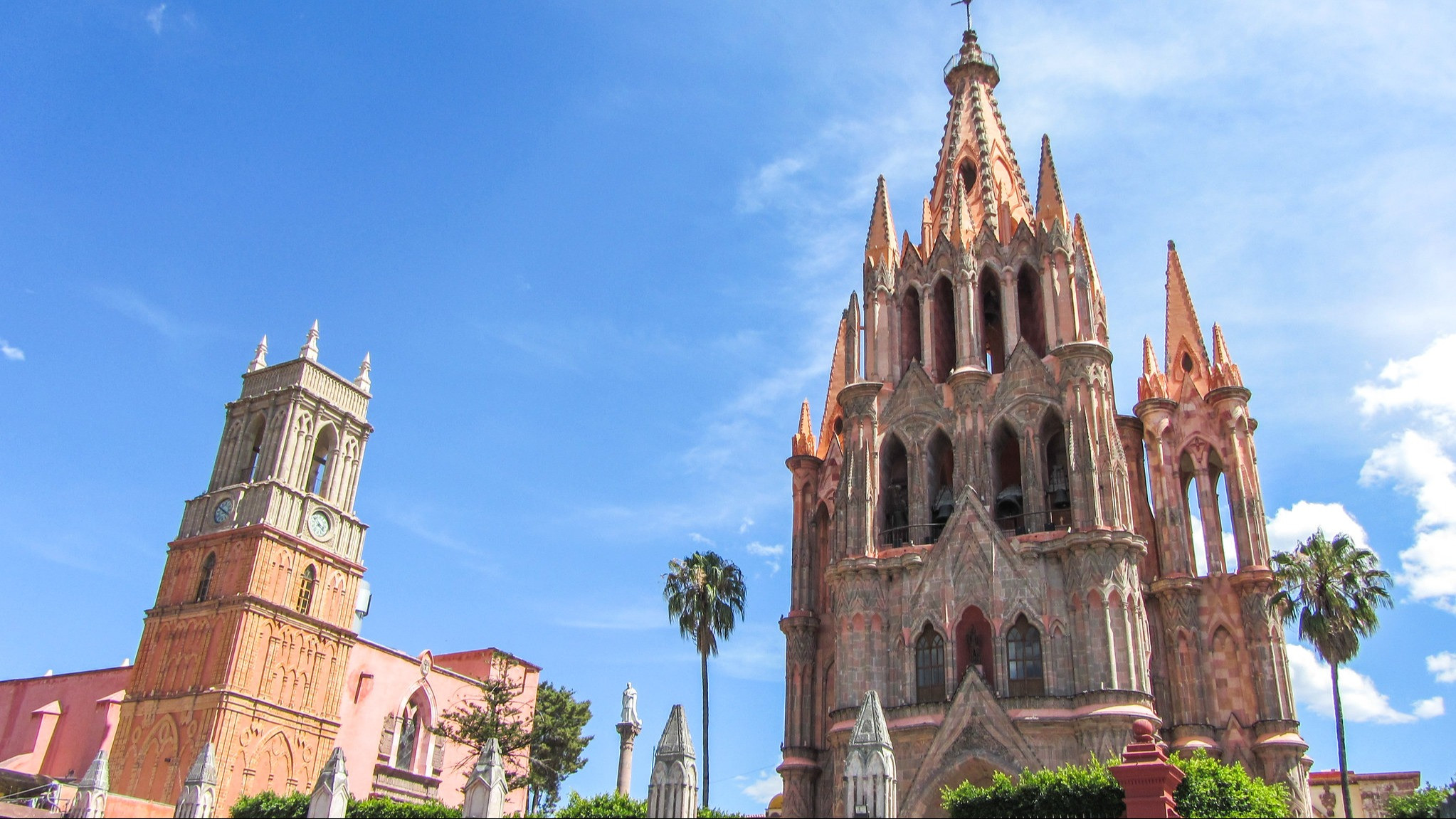Can Foreigners Buy Real Estate In Mexico? Absolutely! This guide on gaymexico.net will walk you through every step of purchasing property in Mexico, from understanding the legal framework to finding the perfect location. Discover how you can own your dream home in this vibrant country with confidence. Learn about real estate taxes, expat restrictions, and property ownership.
1. Understanding Foreign Ownership in Mexico
Is it possible for foreigners to own real estate in Mexico? Yes, it is! Foreign ownership of property in Mexico is entirely legal and common, presenting exciting opportunities for individuals, including LGBTQ+ travelers and those looking for a vacation or retirement home.
How Can Foreigners Buy Property in Mexico?
Outside of restricted zones, which are within 50 kilometers (approximately 31 miles) of shorelines and 100 kilometers (approximately 62 miles) of international borders, foreigners can directly own property with the same rights as Mexican nationals. Within these zones, there are two primary methods:
- Fideicomiso (Bank Trust): This is the most common method, where a bank holds the property title in trust for the buyer, who retains all rights to use, develop, and sell the property. The trust is easily transferable and renewable.
- Mexican Corporation: Foreigners can also purchase property through a Mexican corporation, especially if the property is for commercial purposes.
2. Identifying Your Search Intent
Understanding what you’re looking for is the first step in a successful real estate venture. Five key search intents for foreigners interested in buying real estate in Mexico include:
- Legal Compliance: Ensuring all legal requirements for foreign property ownership are met.
- Investment Opportunities: Finding areas with high potential for property value appreciation and rental income.
- Retirement Planning: Locating suitable retirement destinations with desirable amenities and healthcare facilities.
- Lifestyle Preferences: Discovering properties that align with personal lifestyle choices, such as beachfront living or a colonial-style home.
- Community and Safety: Identifying safe, welcoming communities with strong expat networks.
3. Step-by-Step Guide to Buying Property in Mexico
Purchasing property in Mexico involves several crucial steps to ensure a smooth and secure transaction.
3.1. Step 1: Make an Offer
The initial offer is typically made through a “promissory agreement” (contrato de promesa), drafted by your attorney.
3.2. Step 2: Secure Earnest Money
 Earnest Money in Escrow
Earnest Money in Escrow
Once the offer is accepted, set aside 10% to 20% of the purchase price as earnest money. This should be held in escrow by a trusted third party, not the seller, and title insurance will usually provide escrow services.
Important Considerations:
- Escrow Agents: Unlike in the U.S., escrow agents in Mexico are not always licensed.
- Currency Exchange: Hold the deposit in U.S. dollars to avoid currency exchange issues.
3.3. Step 3: Investigate Title Insurance
Acquiring title insurance is advisable to ensure there are no hidden issues with the property’s title. Title insurance provides peace of mind that your investment is secure.
3.4. Step 4: Notary Investigation and Appraisal
The notary will investigate the property’s title, ensuring it is free from encumbrances and that all taxes are current. At this stage, a purchase sales agreement (contrato de compraventa) should be drawn up by your attorney in Spanish, and also get the property appraised to establish its assessed value.
Key Documents to Obtain:
- Lien certificate (certificado de libertad de gravamenes)
- Non-lien certificate (certificado de no adeudo)
- Copies of paid utility bills
3.5. Step 5: Close on the Property
With assurances from your attorney and notary, meet with the seller and sign the purchase agreement. Provide the remaining payment or transfer funds to the escrow account.
3.6. Step 6: Register Ownership
Ensure the notary registers your deed with the land registry office. Obtain a seal on each page and a certificate of registration.
3.7. Step 7: Create a Mexican Will
To ensure your property is transferred according to your wishes, have your attorney create a Mexican will in Spanish. This simplifies the inheritance process for your heirs.
Alternative: If buying in a bank trust, you can name beneficiaries and heirs in the trust, removing the need for probate.
3.8. Step 8: Notify the Ministry of Foreign Affairs
No matter how you hold your property, notify the Ministry of Foreign Affairs of your purchase. This is typically handled by your attorney or notary.
4. Real Estate Taxes in Mexico
Understanding the tax implications of buying property in Mexico is essential for financial planning.
4.1. Transfer Tax
The buyer pays an acquisition tax when the property changes hands, typically around 3% to 3.3% in areas like the Riviera Maya.
4.2. Inheritance/Gift Tax
While Mexico does not have an estate or inheritance tax, certain real estate gifts are taxed, payable by the recipient. Gifts between spouses and direct family members are exempt.
4.3. Property Tax
 Property Tax San Miguel de Allende
Property Tax San Miguel de Allende
Property tax, known as predial, is quite reasonable compared to U.S. rates, averaging around 0.1% of the assessed property value. It is a local tax typically payable quarterly.
4.4. Rental Income Tax
If you rent out your property and do not reside in Mexico, rental income is taxed at 25%. Residents pay regular income tax rates.
4.5. Capital Gains Tax
Capital gains tax applies when you sell the property, potentially up to 35% of the profit. This can be lowered with appropriate deductions and receipts (facturas) for capital improvements.
Closing Costs
Closing costs, typically paid by the buyer, range from 5% to 9% of the property cost, covering acquisition tax, registration fees, title searches, appraisals, and notary fees.
The seller usually pays the real estate agent’s fee, which ranges from 6% to 10% of the sale price.
5. Premier Destinations for Real Estate Investment in Mexico
Mexico offers diverse real estate investment opportunities, each with unique attractions and investment potential.
5.1. Riviera Maya
 Riviera Maya Beaches
Riviera Maya Beaches
The Riviera Maya, along Mexico’s Caribbean coast, is known for its stunning beaches and thriving tourism. Key locations include:
- Playa del Carmen: A chic city with vibrant nightlife and shopping.
- Akumal: A tranquil beach town ideal for swimming with sea turtles.
- Tulum: A hipster haven with gourmet dining and Mayan ruins.
Investment Potential:
- High rental income from tourists.
- Significant property value appreciation.
5.2. San Miguel de Allende
 San Miguel de Allende
San Miguel de Allende
San Miguel de Allende is a picturesque colonial town in the Colonial Highlands, attracting artists and expats with its colorful streets and vibrant culture.
Investment Potential:
- Strong rental market targeting wealthy tourists and wedding attendees.
- Growing expat community.
- High demand for luxury rentals.
5.3. Los Cabos
 Los Cabos, Baja California, Mexico
Los Cabos, Baja California, Mexico
Los Cabos offers a unique desert landscape meeting the Sea of Cortez and the Pacific Ocean. Known for its luxury amenities, it attracts tourists and retirees.
Investment Potential:
- High demand from affluent tourists and retirees.
- Limited building restrictions, driving up property values.
- Strong market for rentals and second homes.
6. Overcoming Common Concerns for Expats
Addressing common concerns can help expats feel more secure about investing in Mexican real estate.
6.1. Direct vs. Indirect Ownership
- Direct Deed: Foreigners can hold direct deed to property outside restricted zones, with the same rights as Mexican nationals.
- Bank Trust (Fideicomiso): Within restricted zones, this is the most common way for foreigners to own property, giving them control and use of the property.
6.2. Can the Mexican Government Take Your Land?
The Mexican government cannot arbitrarily take your land. Cases of repossession usually involve fraudulent titles, emphasizing the need for a competent attorney.
6.3. Restrictions for Expats
Foreign buyers cannot directly own property within 50 kilometers of the high tide line or 100 kilometers of international borders; instead, it must be held via a Mexican corporation or fideicomiso. Also, you cannot own ejido land, which is government land granted for use by local members.
7. Is Mexico a Safe Place for LGBTQ+ People to Live and Invest?
Mexico is increasingly recognized as a welcoming destination for LGBTQ+ individuals, and many cities are known for their inclusive environments. While societal attitudes can vary, major urban areas and tourist destinations often have vibrant LGBTQ+ communities and supportive atmospheres.
7.1. LGBTQ+-Friendly Destinations
- Puerto Vallarta: Often hailed as the “gay capital of Mexico,” Puerto Vallarta boasts a thriving LGBTQ+ scene with numerous gay bars, clubs, and hotels. The city is known for its welcoming atmosphere and annual Pride celebrations.
- Mexico City: The capital city offers a progressive and inclusive environment with a growing number of LGBTQ+ establishments. Neighborhoods like Zona Rosa are popular for their gay-friendly venues and cultural events.
- Guadalajara: As Mexico’s second-largest city, Guadalajara is becoming increasingly open and accepting, with a developing LGBTQ+ scene and growing support for LGBTQ+ rights.
7.2. Legal Protections and Rights
Mexico has made significant strides in LGBTQ+ rights, including the legalization of same-sex marriage nationwide. The Supreme Court’s ruling in 2015 paved the way for states to legalize same-sex marriage, and by 2022, all 32 states had recognized marriage equality.
Additionally, Mexico has laws in place to protect against discrimination based on sexual orientation and gender identity, providing legal recourse for LGBTQ+ individuals who experience unfair treatment.
7.3. Safety and Acceptance
While attitudes toward LGBTQ+ individuals have evolved positively in many parts of Mexico, it’s important to exercise caution and be aware of local customs, especially in more rural areas. However, in LGBTQ+-friendly destinations like Puerto Vallarta and Mexico City, visitors and residents alike can generally feel safe and accepted.
7.4. Investment Considerations
For LGBTQ+ individuals looking to invest in real estate in Mexico, LGBTQ+-friendly destinations offer not only a welcoming environment but also potential for financial gain. The thriving tourism industry and strong LGBTQ+ communities in these areas can create opportunities for rental income and property appreciation.
8. How gaymexico.net Can Help
At gaymexico.net, we understand that finding the right information and resources is crucial, whether you’re an LGBTQ+ traveler seeking welcoming destinations or an investor looking for lucrative opportunities. Our website is designed to be your comprehensive guide to all things LGBTQ+ in Mexico, providing detailed insights and up-to-date information to help you make informed decisions.
8.1. Extensive Destination Guides
Discover LGBTQ+-friendly cities and regions in Mexico with our in-depth destination guides. From the vibrant nightlife of Puerto Vallarta to the cultural richness of Mexico City, we offer insider tips on the best places to stay, dine, and explore. Find hidden gems, popular attractions, and local hotspots that cater to the LGBTQ+ community.
8.2. LGBTQ+ Events and Festivals
Stay informed about the latest LGBTQ+ events and festivals happening across Mexico. Whether it’s Pride celebrations, film festivals, or cultural gatherings, we provide a curated calendar of events that celebrate diversity and inclusivity. Connect with like-minded individuals, experience the local culture, and create unforgettable memories.
8.3. Expert Advice and Resources
Navigate the complexities of traveling and investing in Mexico with our expert advice and resources. From legal insights to practical tips, we offer valuable information to help you make informed decisions. Explore our articles on LGBTQ+ rights, safety tips, and cultural etiquette to ensure a smooth and enjoyable experience.
8.4. Community Connections
Connect with the LGBTQ+ community in Mexico through our interactive platform. Share your experiences, ask questions, and seek recommendations from fellow travelers and locals. Whether you’re looking for advice on the best neighborhoods to live in or seeking support from LGBTQ+ organizations, our community forum is here to help.
9. FAQs About Buying Real Estate in Mexico
1. Can foreigners buy property in Mexico?
Yes, foreigners can legally buy property in Mexico. Outside of restricted zones (50 km from coastlines and 100 km from borders), they can hold direct deed. In restricted zones, they can use a fideicomiso (bank trust) or a Mexican corporation.
2. What is a fideicomiso, and how does it work?
A fideicomiso is a bank trust where the bank holds the property title for the buyer, who retains all rights to use, develop, and sell the property.
3. Are there any restrictions on where foreigners can buy property?
Yes, foreigners cannot hold direct deed to property within 50 kilometers of coastlines or 100 kilometers of international borders.
4. What are the main costs associated with buying property in Mexico?
Costs include transfer tax, notary fees, appraisal fees, and registration fees, typically ranging from 5% to 9% of the purchase price.
5. What is the property tax rate in Mexico?
The property tax (predial) averages around 0.1% of the assessed property value and is payable quarterly.
6. How can I ensure my property is legally sound?
Hire a competent attorney to verify the property title is clear, legal, and unencumbered.
7. What is ejido land, and can foreigners own it?
Ejido land is government land granted for use by local members and cannot be directly owned by foreigners.
8. How can I transfer my property to my heirs?
Create a Mexican will or name beneficiaries in a bank trust to simplify the inheritance process.
9. What are some popular locations for expats to buy property in Mexico?
Popular locations include Riviera Maya, San Miguel de Allende, and Los Cabos.
10. Is Mexico safe for LGBTQ+ individuals to live and invest?
Yes, many cities in Mexico, like Puerto Vallarta and Mexico City, are LGBTQ+-friendly with supportive communities and legal protections.
10. Call to Action
Ready to explore the possibilities of owning property in Mexico? Visit gaymexico.net today to discover our detailed destination guides, find LGBTQ+ events, and connect with the community. Whether you’re dreaming of a beachfront condo or a colonial home, we’re here to help you navigate the Mexican real estate market with confidence.
Contact Information:
Address: 3255 Wilshire Blvd, Los Angeles, CA 90010, United States
Phone: +1 (213) 380-2177
Website: gaymexico.net